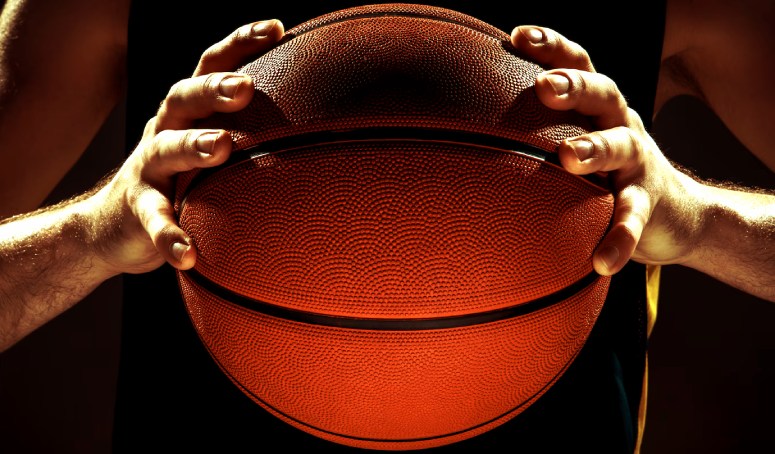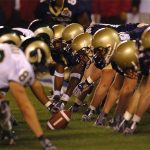Contents
What are the odds of making the NBA? This question is central to understanding the path to success in professional basketball, as only a select few manage to rise to this elite level.
This article delves into the essential components that contribute to success in professional basketball, including the critical skills required, the evaluation of talent by scouts, and the importance of hard work and determination.
Furthermore, we will examine the significance of genetics and physical attributes, as well as the often-overlooked aspects of opportunity and luck.
While natural talent plays a role, understanding the likelihood of reaching the NBA can provide a realistic perspective for aspiring players.
We invite you to explore the realities of achieving success in the NBA and discover the attributes necessary to distinguish oneself in this highly competitive field.
The importance of talent and skill
In the highly competitive realm of professional basketball, the significance of talent and skill is paramount.
Aspiring athletes are required to navigate a demanding journey that typically commences in high school basketball and progresses through college basketball.
During this period, talent evaluation and scouting are crucial components in the player selection process for the NBA draft.
This procedure takes into account multiple factors, including athletic ability, skill level, and performance metrics, ultimately influencing the likelihood of success at the elite level of competition.
What skills are required for the NBA?
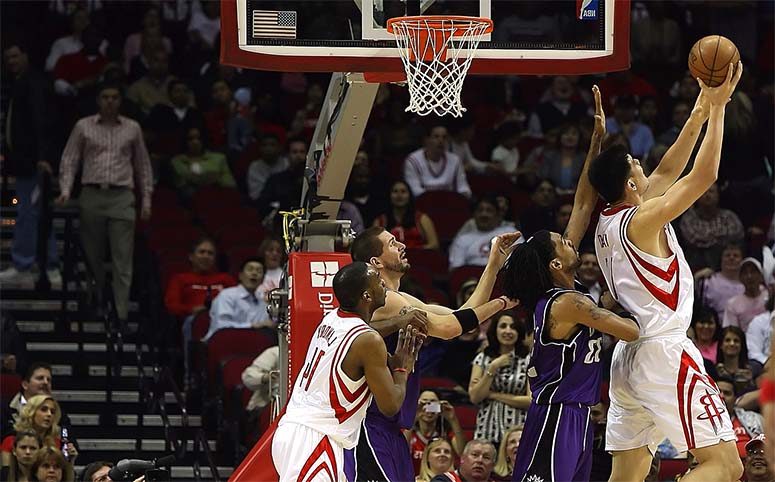
To achieve success in the NBA, players must possess a comprehensive skill set that includes shooting, defensive, and offensive capabilities, as well as a high basketball IQ that allows them to analyze the game effectively.
These fundamental skills, in conjunction with teamwork and leadership qualities, are vital for contributing to team dynamics and overall success within the league.
Offensive skills include shooting accuracy, dribbling proficiency, and the ability to generate scoring opportunities, while defensive skills encompass agility, anticipation, and the ability to disrupt opponents’ plays.
A player’s competitive nature often enhances their marketability, attracting both fans and sponsors.
Furthermore, versatility on the court can significantly increase a player’s value, enabling them to adapt to various gameplay situations.
This adaptability not only enhances individual performance but also elevates the overall capability of the team. Therefore, it is essential for aspiring professionals to prioritize holistic skill development throughout their training.
How do scouts evaluate talent?
When considering a career in the NBA, many aspiring players wonder, “What are the odds of making the NBA?” Scouts evaluate talent through a rigorous process that includes analyzing performance metrics, reviewing player comparisons, and considering factors such as injury history and game statistics.
This evaluation process is essential for recruitment, as it enables teams to identify players with the potential to succeed at the NBA level.
Plus traditional scouting methods, teams now utilize advanced analytics and statistical tracking to gain deeper insights into a player’s performance. Tools such as player efficiency rating (PER) and true shooting percentage provide invaluable data that informs decision-making.
Scouting reports offer a comprehensive assessment, detailing a player’s strengths, weaknesses, and potential fit within a team’s system.
These reports are crucial during the draft process, as they can significantly influence a team’s choices, often determining which players are prioritized based on their alignment with team needs and overall strategic objectives.
The role of hard work and determination
In the pursuit of a career in the NBA, hard work and determination are essential factors for success. Achieving this goal often necessitates a considerable financial investment and a steadfast commitment to training and practice.
Aspiring players must cultivate a strong work ethic and maintain a high level of motivation to navigate the various challenges they may encounter, including past injuries and intense competition within a demanding environment.
How much time and effort is needed to make the NBA?
The time commitment required to reach the NBA is substantial, often necessitating years of dedicated training, practice, and participation in basketball camps, showcases, and summer leagues.
Aspiring players must persevere through various stages of development, demonstrating unwavering dedication to their craft and a relentless work ethic.
As these athletes progress through youth programs, they typically begin honing their skills at a young age, often participating in local community leagues or school teams. This foundational phase is critical, as it not only develops technical abilities but also instills a lasting passion for the game.
High school basketball represents a pivotal moment in this journey, serving as a launching pad for college recruitment. During this time, exposure to scouts and recruiters can significantly influence a player’s career trajectory.
Therefore, players are encouraged to participate in various tournaments and showcases to enhance their visibility, while also relying on the support of family, coaches, and mentors who guide them through the challenges they encounter.
Additionally, maintaining physical fitness and mental toughness is imperative, as players must contend with increasing competition and the pressure to excel at every level.
What type of training is necessary for NBA success?
Training for success in the NBA requires a comprehensive approach that encompasses skill development, strength training, agility, and mastery of the game’s fundamentals.
Aspiring players must engage in workout routines specifically designed to enhance their performance metrics and seek mentorship from experienced coaching staff.
To reach their peak potential, young athletes should incorporate various training regimens that target specific areas of their game.
For example, those looking to enhance their shooting skills can employ targeted drills focused on accuracy and consistency, while simultaneously refining their footwork and shooting mechanics.
A well-rounded training regimen is incomplete without dedicated sessions for both offensive and defensive strategies, enabling players to improve their ability to read the game and respond effectively to their opponents.
Furthermore, conditioning is essential for sustaining energy levels throughout games, allowing athletes to maintain peak performance during critical moments.
By integrating these methodologies, players can promote their development, ultimately laying the groundwork for successful careers in the NBA.
The impact of genetics and physical attributes
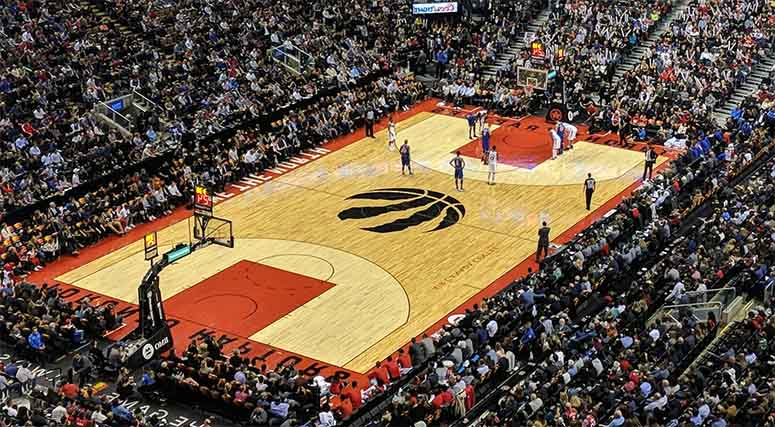
Genetics and physical attributes significantly influence an athlete’s prospects of entering the NBA, with characteristics such as height and wingspan frequently being closely examined during the player selection process.
A comprehensive understanding of the impact of these attributes, in conjunction with athletic ability and age considerations, can offer valuable insights into a player’s potential career trajectory and success rate within the league.
How important are height and wingspan in the NBA?
Height and wingspan are critical metrics in the NBA, often providing players with a competitive advantage, particularly in positions that require specific physical attributes.
Scouting reports consistently emphasize these factors, as they can significantly influence player selection and team dynamics during the draft process.
For example, centers and power forwards frequently excel due to their capacity to dominate the paint, and an extended wingspan enables them to secure rebounds and effectively block shots.
Guards, while typically shorter, also benefit from a balanced combination of height and wingspan to disrupt passing lanes and contest shots.
By comprehensively understanding how these physical traits correlate with positional requirements, teams can devise strategies that maximize individual strengths, ultimately enhancing their overall performance.
As the league continues to evolve, the significance of these attributes becomes increasingly pronounced, impacting everything from defensive matchups to offensive schemes.
Can genetics predict NBA success?
While genetics may confer certain advantages, such as athletic ability, they cannot solely determine success in the NBA. Numerous additional factors, including player development, commitment, and injury history, significantly influence an athlete’s career trajectory.
Recognizing this complexity can assist aspiring players in setting realistic expectations for their professional journeys.
For example, athletes like Allen Iverson and Chris Paul illustrate how an unwavering work ethic and skill development can enhance performance, challenging the common perception that height and physical stature are the most important attributes.
Both players encountered skepticism throughout their careers – however, they demonstrated exceptional talent and determination, proving that perseverance often surpasses innate physical advantages.
This underscores the argument that, while biological factors may play a role, the multifaceted nature of success in basketball encompasses mental resilience, strategic understanding, and a dedication to continuous improvement – essential qualities that any aspiring player should cultivate in their pursuit of excellence.
The role of opportunity and luck
Plus skill and diligence, opportunity and luck are crucial elements in the pursuit of a career in the NBA. Players must often find themselves in the right circumstances during recruitment processes.
Factors such as exposure to recruiters at summer leagues and showcases can profoundly influence their prospects of being considered for a player contract within the league.
How does luck play a role in making the NBA?
Luck can significantly influence an aspiring player’s journey to the NBA, often presenting itself through unforeseen opportunities that arise during the recruitment process, such as a chance meeting with a scout or an exceptional performance at a local game.
These pivotal moments can alter the course of a player’s career, illustrating the unpredictable nature of professional basketball. For many young athletes, these fortuitous events act as catalysts that elevate them into the spotlight.
Take, for instance, the narrative of a player who, following an unexpected injury to a teammate, was elevated to a starting position and took full advantage of the opportunity to demonstrate his abilities.
With each game, his confidence expanded, attracting attention from scouts in search of emerging talent.
This scenario emphasizes the intricate relationship between luck and hard work – while inherent talent is undeniably important, it is often these serendipitous breaks that can pave the way to professional leagues and contribute to enduring legacies within the sport.
What opportunities are available for aspiring NBA players?
Aspiring NBA players have access to a range of opportunities, including basketball camps, showcases, and participation in professional leagues such as the G League and NCAA.
These platforms provide essential exposure and recruitment opportunities that can significantly enhance their prospects of being recognized by NBA scouts and teams.
Participation in structured camps can markedly improve their skills, as these programs allow individuals to train under the guidance of experienced coaches while competing against peers.
Showcases fulfill a dual function – they enable players to exhibit their abilities in high-pressure situations while simultaneously providing scouts with a venue to assess prospects in real-time.
Competing in leagues such as the G League or NCAA not only places players in an environment populated by potential future colleagues and rivals but also immerses them in a competitive setting that necessitates high performance and a dedicated work ethic.
Collectively, these experiences are vital for anyone aiming to transition into a professional career in the realm of basketball.
The odds of making it to the NBA
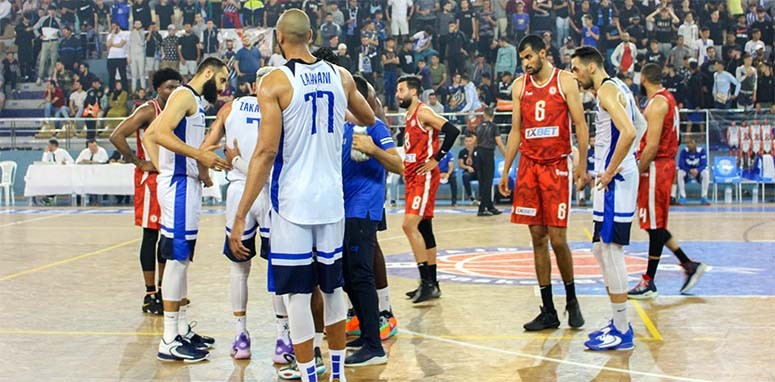
The likelihood of being selected for the NBA is statistically demanding, as only a small percentage of high school and college players ultimately secure a position during the NBA draft process.
These statistics emphasize the highly competitive nature of player selection, particularly regarding lottery picks in contrast to those chosen in the second round, thereby highlighting the critical roles of skill and opportunity in this process.
How many players make it to the NBA each year?
Each year, the NBA draft results in a limited number of players being selected, typically bringing fewer than 60 new athletes into the league, which includes both lottery picks and second-round selections.
This statistic underscores the competitive nature of recruitment and the rigorous player selection process that aspiring athletes must navigate.
The contrast between lottery picks, usually chosen from the top 14 slots, and those selected in the second round is significant, reflecting varying perceptions of talent and potential.
Lottery selections are often accompanied by high expectations and considerable financial investments, as teams aim to secure transformative players capable of making an immediate impact.
Conversely, second-round draftees frequently encounter a more challenging path, as they must compete to demonstrate their value against established players.
Numerous factors influence these recruitment decisions, including collegiate performance, physical attributes, and the ability to adapt to the league’s fast-paced environment.
Ultimately, these dynamics significantly shape each player’s journey from the draft table to professional play.
What are the chances of making it to the NBA?
The probability of successfully entering the NBA is quite low, as statistics reveal that only a small percentage of high school basketball players advance to college basketball, and an even smaller fraction reaches the professional level.
Understanding these odds is crucial for aspiring athletes, as it enables them to set realistic expectations and adequately prepare for the challenges that lie ahead.
While it is common to become enamored with aspirations of achieving stardom, it is essential to consider various factors, including player demographics, the level of competition encountered, and opportunities for individual skill development.
Recruitment pathways often hinge not only on talent but also on effective networking, visibility to scouts, and performance in key tournaments.
There are frequent misconceptions regarding the necessity of attending prestigious colleges – however, consistent performance, hard work, and perseverance can indeed create opportunities regardless of the institution’s reputation.
Ultimately, aspiring athletes should prioritize continuous improvement and resilience, as the journey to professional basketball is filled with obstacles and demands unwavering dedication. For those also interested in football, understanding what are the odds of making it to the NFL can provide similar insights and guidance as they work toward their own professional goals.
Our FAQ section about the odds of reaching the NBA is located further down the page.
Explore the intriguing realm of probabilities and rare events. Quench your curiosity and delve deeper by checking out our other articles at WhatAreTheOddsOf.NET.

